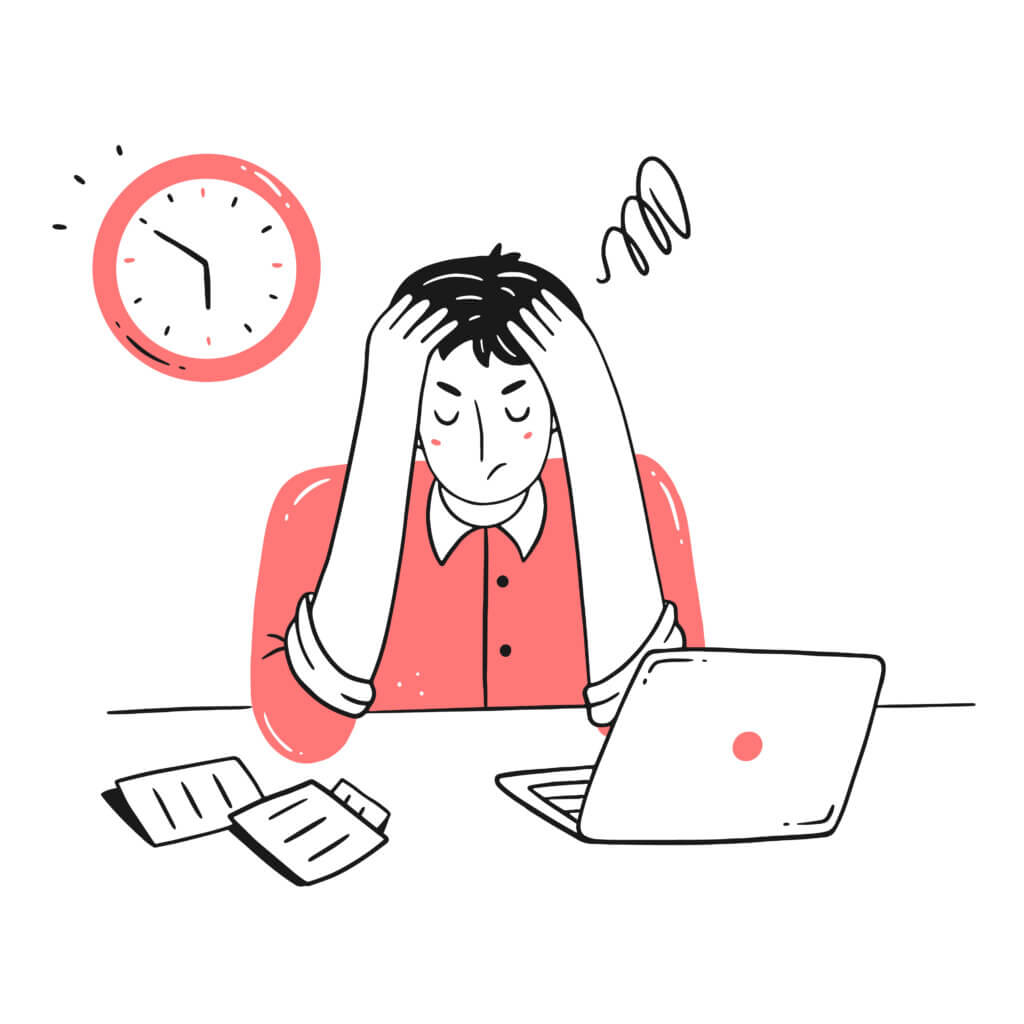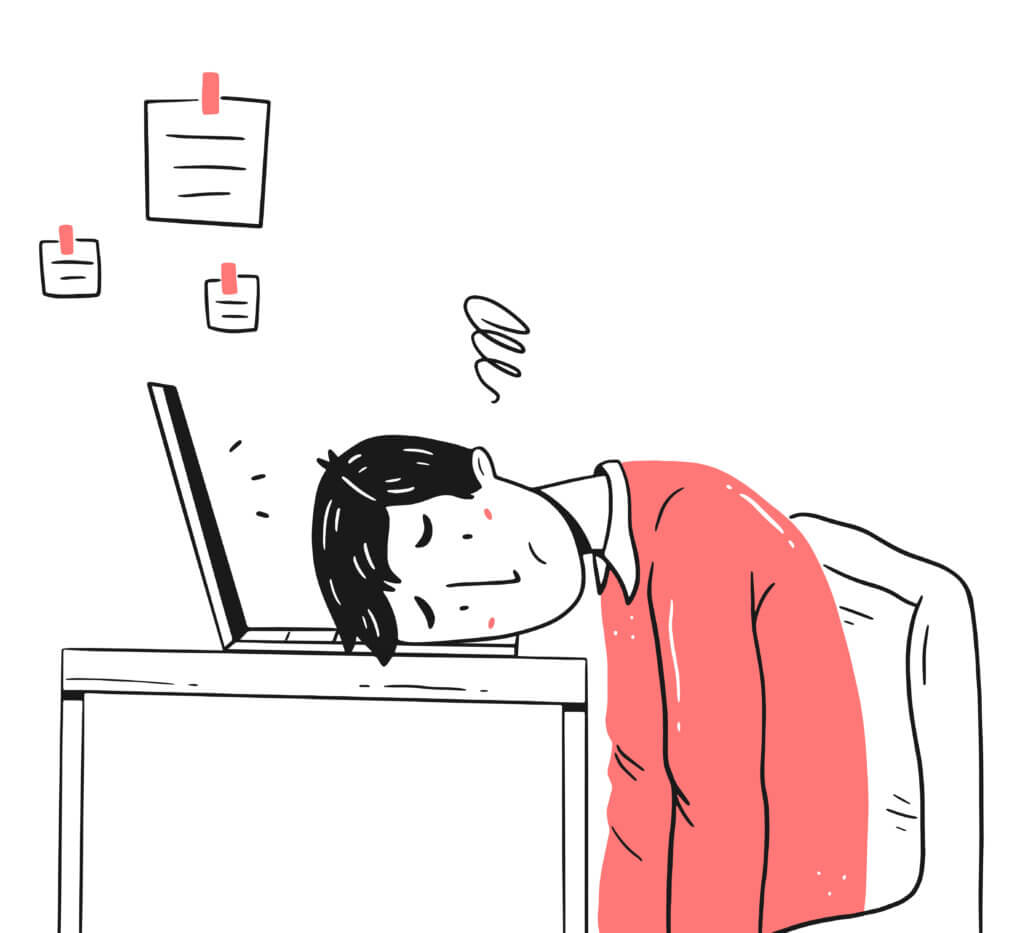Burnout can obstruct your career path and make it feel impossible to move forward. What can we do to prevent burnout?
According to a survey by Gallup, 76% of employees have experienced burnout at least once while working. Not only does burnout make it incredibly difficult to do your job, but studies have also shown that it can lead to increased risks for mental illnesses and cardiovascular problems. When the workplace gets stressful, it’s important to know how to protect yourself from burnout.

What is burnout?
While some may dismiss burnout as simply “being tired”, burnout is much more than that. The World Health Organization’s official definition of burnout describes it as an occupational phenomenon that happens when you’ve experienced an extreme amount of stress in the workplace.
There are three main characteristics of burnout. The first is exhaustion, or feeling like you don’t have any energy. The second characteristic is having negative and cynical feelings towards your job. This includes feeling like you don’t like your job, choosing to do the bare minimum, and putting in very little effort.
Lastly, burnout also involves a diminished sense of professional efficacy. Professional efficacy refers to the feeling of competency, and having the confidence that you can do your job. When you have low professional efficacy, you experience feelings of self-doubt and impostor syndrome. Clearly, burnout is more than just feeling tired – it also involves having negative feelings about yourself and your job.
What causes burnout?
Chronic workplace stress leads to burnout, but many different factors can cause this chronic stress. Consistently working long hours and constant overtime significantly raise your chances of experiencing burnout. If your workday is extremely long or you often take your work home, you are at much greater risk of suffering from burnout.
Sometimes stress from home can pile on top of work-related stress, which can also lead to burnout. Coming from an stressful setting at work to an equally stressful situation at home, whether that’s due to parenting or other responsibilities, can make it difficult to take a break.
However, there are other factors that can lead to burnout. These factors have more to do with your work environment, rather than how many hours you’re working. Surveys have shown that a negative work experience has a more significant effect on experiencing burnout than the number of hours worked.
For instance, having to meet extremely high goals without a lot of resources is a common cause of burnout. Similarly, managers expecting employees to complete too many tasks in too little time frequently leads to burnout. Other stress-causing factors that can contribute to burnout include poor communication with managers, unreasonable expectations, and experiencing unfair treatment between coworkers. In general, poor management makes it difficult to do your job, creating that chronic workplace stress that often ends up as burnout.

How can you prevent burnout?
Set realistic goals
One good way to prevent burnout is by setting realistic goals for yourself. Try breaking down your bigger goals into smaller, more manageable tasks to feel less overwhelmed. Fulfilling smaller, short-term goals can be a positive boost to help combat the feelings of low professional efficacy that come with burnout.
You can also set non-work related goals for yourself. If you find that your studies or home life are contributing to your burnout, small goals like eating three meals a day or staying offline for a few hours everyday can help remind you to take care of yourself.
Create a support system
Having a support system is essential in combating burnout. A support system made up of your peers, work colleagues, or a mentor can help you face stressful challenges. Spending time with people you care about is also a way to fully unwind and boost your mental health. Additionally, a support system of your work colleagues can make you feel less alone in your workplace, which is especially valuable when dealing with poor management.
Set boundaries
An important aspect of creating a work-life balance is setting boundaries. It is crucial to know how to stop working once your work day has ended in order to prevent burnout. Heavy workloads often end up bleeding into the home, making it difficult to take a real break from work. Additionally, smartphones and the ease of instant communication have normalized constant availability.
One way you can set boundaries is by turning off notifications on devices after work hours. Another alternative is to go completely offline and turn off all devices for at least a few hours each day. Setting these kinds of boundaries can protect you from working too many hours everyday.
Coping versus prevention
It’s important to differentiate between coping mechanisms and prevention strategies when it comes to burnout. Dr. Christina Maslach, a leading psychology expert on burnout, has found that coping with burnout is different than targeting the root cause. For instance, going on vacation can help alleviate feelings of burnout for some time.
However, if you’re not addressing the problem you’re facing at work, those burnout feelings will still come back after a vacation. While many companies tout self-care initiatives, these efforts rarely change the job conditions that are actually causing burnout. Thus, it’s important to differentiate between how you can cope with burnout, and what needs to change in the workplace to truly prevent burnout from happening.
For more advice on dealing with poor management, check out this article on UMBC’s Professional Programs blog.
